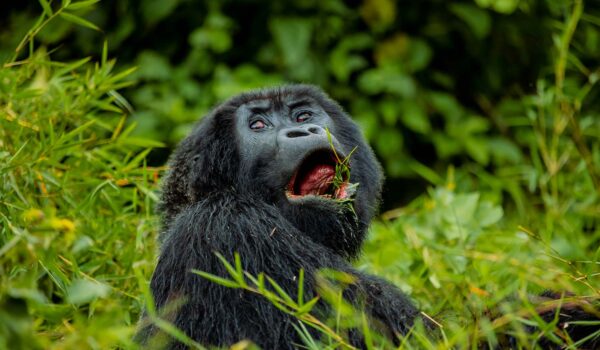Tanzania Travel Advice
Tanzania, located in East Africa, is a premier travel destination known for its extraordinary wildlife, stunning landscapes, and vibrant cultures. The country offers visitors a diverse range of experiences, from witnessing the Great Migration in the Serengeti to climbing the majestic Mount Kilimanjaro. For anyone planning a visit, it’s essential to prepare adequately to ensure a safe, enjoyable, and fulfilling trip. This guide provides detailed travel advice on various aspects, including when to visit, must-see locations, cultural considerations, and practical tips for navigating Tanzania.
Best Time to Visit Tanzania
Tanzania’s climate varies significantly between regions, which makes timing an important factor. Generally, the country experiences two main seasons:
Dry Season (June to October): This is the best time for wildlife viewing. The dry conditions force animals to congregate around water sources, making them easier to spot. The Great Migration, a spectacular annual movement of wildebeests and zebras, takes place in the Serengeti, with river crossings typically occurring between July and September.
Wet Season (November to May): The “short rains” occur in November and December, while the “long rains” fall from March to May. The wet season, especially the long rains, is often less ideal for safaris due to muddy roads and dense vegetation. However, this season offers lush landscapes, fewer crowds, and lower prices. Birdwatching is particularly rewarding as migratory birds arrive from the Northern Hemisphere.
Key Destinations and Experiences
Serengeti National Park
The Serengeti is globally renowned for its vast plains and the Great Migration. Here, visitors can witness one of nature’s most thrilling spectacles, with millions of animals traversing the plains in search of fresh grazing grounds. Additionally, the park is home to the “Big Five” (lion, elephant, buffalo, leopard, and rhinoceros).
Ngorongoro Crater
Formed by a massive volcanic eruption millions of years ago, this UNESCO World Heritage site is a breathtaking natural wonder. The crater has a unique ecosystem that sustains a high concentration of wildlife, including rare black rhinos. The views from the crater rim are spectacular, and the area offers rich cultural experiences with the Maasai people, who live near the reserve.
Mount Kilimanjaro
For adventurous travelers, Kilimanjaro offers the unique experience of climbing Africa’s highest peak. The trek, typically lasting between five to nine days depending on the route, takes climbers through diverse ecosystems—from rainforests to alpine deserts. Reaching the summit is challenging but incredibly rewarding, providing views across the plains and beyond.
Zanzibar
The Zanzibar Archipelago, with its pristine beaches and rich Swahili culture, offers a relaxing retreat. Stone Town, a UNESCO World Heritage site, is famous for its winding streets, spice markets, and historic architecture. Visitors can also explore Jozani Forest to see the rare red colobus monkeys or snorkel in the coral reefs around Mnemba Island.
Selous Game Reserve and Ruaha National Park
For those seeking less crowded parks, Selous and Ruaha provide an off-the-beaten-path safari experience. Selous is home to large populations of elephants, hippos, and crocodiles, while Ruaha is known for its large lion prides and baobab-studded landscapes. These parks are perfect for travelers who want to immerse themselves in the wilderness away from larger tourist crowds.
Cultural Etiquette and Local Interactions
Understanding and respecting Tanzania’s diverse cultural heritage is crucial for a positive travel experience. The nation is home to over 120 ethnic groups, each with its own language and traditions, though Swahili is the national language and widely spoken.
Greetings: Tanzanians place high importance on greetings, often asking about a person’s well-being before starting a conversation. A simple “Jambo” or “Habari” (hello or how are you?) is appreciated.
Dress Code: In urban areas and near local villages, it’s respectful to dress modestly. In rural areas, especially around religious sites, women should avoid short skirts or revealing clothing. When visiting the beaches in Zanzibar, swimwear is acceptable only on the beach, as locals appreciate modest attire in town areas.
Photography: Always ask for permission before taking photos of people or religious sites. Tanzanians are generally friendly, but respect and politeness go a long way in building rapport.
Health and Safety Considerations
Vaccinations and Malaria Prevention
Yellow fever vaccination is mandatory if you’re arriving from a country with a risk of yellow fever transmission. It’s also advisable to get vaccinations for hepatitis A, typhoid, and tetanus. Malaria is a risk throughout Tanzania, so travelers should consult a healthcare provider about antimalarial medications and take preventive measures like using insect repellent and sleeping under mosquito nets.
Food and Water Safety
Stick to bottled or boiled water, and avoid drinking tap water. Street food can be tempting, but if you have a sensitive stomach, opt for food from reputable restaurants to avoid gastrointestinal issues.
Travel Insurance
Comprehensive travel insurance that covers medical evacuation, trip cancellation, and theft is highly recommended. In remote areas, healthcare facilities are limited, so having insurance can be invaluable in case of emergencies.
Practical Travel Tips
Currency and Payments
The Tanzanian shilling (TZS) is the official currency, but US dollars are widely accepted in hotels, safari lodges, and tourist areas. Carrying some local currency is useful for small purchases. ATMs are available in major cities but may be scarce in rural areas, so it’s advisable to plan ahead.
Transportation
Domestic flights are common for getting around due to the country’s size. Overland travel by bus or car is possible but can be challenging, especially during the rainy season. For safaris, hiring a local guide or joining a tour is recommended for the best experience.
Language and Communication
While Swahili is the official language, English is widely spoken in tourist areas. Learning a few Swahili phrases, such as “Asante” (thank you) and “Karibu” (welcome), can enhance your interactions with locals.
Responsible Travel Tips
Wildlife Protection
Respect wildlife by maintaining a safe distance and refraining from feeding animals. Stick to designated paths and follow your guide’s instructions to avoid disturbing the natural environment.
Supporting Local Communities
Purchasing locally made crafts and products helps support Tanzania’s communities. Many safaris and tours offer cultural visits, where you can engage with local people. It’s encouraged to contribute to these communities through ethical spending rather than giving handouts, as this can support sustainable development.
Environmental Impact
To reduce your environmental footprint, use reusable water bottles, avoid single-use plastics, and choose eco-friendly accommodations where possible.

